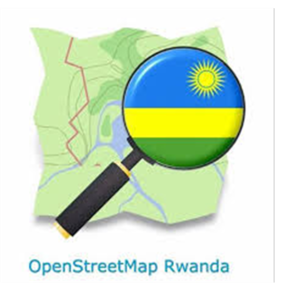OSM Rwanda
This is the official page for OpenStreetMap Rwanda, a local community of contributors, users advocating and supporting OpenStreetMap in Rwanda.
.
Background
OpenStreetMap (OSM) is a collaborative mapping project that aims to create a free and editable map of the world. It is built by a global community of volunteers who contribute their local knowledge to improve the accuracy and detail of the map. OpenStreetMap has become particularly significant in countries where detailed mapping data is scarce or not freely available, including Rwanda.
Rwanda, a small landlocked country in East Africa, has a unique history and geography. It experienced a devastating genocide in 1994, which resulted in the loss of a significant portion of its population. Following the genocide, the country went through a process of reconciliation, rebuilding, and development.
OpenStreetMap has played a crucial role in mapping Rwanda, providing detailed and up-to-date geographic information that supports various sectors such as urban planning, transportation, healthcare, education, and emergency response. The mapping efforts in Rwanda have been supported by various organizations and initiatives, including the Humanitarian OpenStreetMap Team (HOT) and the Rwanda Development Board.
The availability of accurate and freely accessible mapping data has benefited Rwanda in numerous ways. It has supported urban planning efforts, infrastructure development, disaster management, and humanitarian aid delivery. Additionally, OpenStreetMap data has been integrated into various applications and services, including navigation systems, mobile apps, and research projects.
The collaborative nature of OpenStreetMap has allowed Rwandans to actively participate in the mapping process, empowering local communities and individuals to contribute their knowledge and expertise. This engagement has not only improved the accuracy of the map but also fostered a sense of ownership and pride among the Rwandan people.
Overall, OpenStreetMap has played a vital role in mapping Rwanda, providing valuable geospatial information that supports development, planning, and decision-making processes in the country. The collaborative efforts of local and international volunteers have contributed to the growth and accuracy of the map, making it a valuable resource for both Rwandans and the global community.
Mission & Vision
Mission: create environmental sustainability by addressing the challenges of biodiversity loss, pollution and climate change through innovative solutions and advocacy.
Vision: A world where humans live in harmony with nature, and future generations can thrive in a healthy and vibrant environment.
Governance and Structure
How can you Join and Contribute?
Contributing to OpenStreetMap (OSM) in Rwanda is a great way to help improve the accuracy and completeness of the map data for the country.
Here are the steps to get started:
Step 1: Create an OpenStreetMap Account: Visit the OpenStreetMap website at www.openstreetmap.org and create a free account. This will allow you to contribute to the map.
Step 2: Learn the Basics: Familiarize yourself with the basic concepts of OpenStreetMap. Understand how to navigate the map, search for locations, and view and edit map data.
Step 3: Use the iD Editor: The iD editor is the default online editor for OpenStreetMap and is user-friendly for beginners. It allows you to make edits directly in your web browser. Start by practicing simple edits, such as adding missing buildings, roads, or points of interest (POIs).
Step 4: Study the Local Area: Before making edits, spend some time studying the area you wish to contribute to. Familiarize yourself with the existing map data, local landmarks, road networks, and any other relevant information.
Step 5: Add and Edit Map Features: Use the iD editor to add missing features or edit existing ones. This can include roads, buildings, parks, water bodies, shops, schools, healthcare facilities, and more. Ensure the accuracy of your contributions by referring to satellite imagery, local knowledge, or other reliable sources.
Step 6: Verify and Validate: After making edits, take the time to review your changes and verify their accuracy. Use the validation tools available in OpenStreetMap to check for errors or inconsistencies in the data.
Step 7: Collaborate with the Community: Join the OpenStreetMap community in Rwanda by engaging with local mappers through mailing lists, forums, or social media channels. Collaborating with experienced contributors can help you learn more and get feedback on your work.
Step 8: Participate in Mapping Events in Rwanda: Keep an eye out for mapping events, such as mapathons or mapping parties, organized by the OSM community. These events bring mappers together to collectively improve the map data for specific areas. Participating in these events can be a great way to learn and contribute alongside experienced mappers.
Step 9: Contribute Local Knowledge: If you have local knowledge about specific areas or features that are missing from the map, contribute that information. This can include names of streets, businesses, amenities, or any other details that can enhance the map's accuracy and usefulness.
Step 10: Document and Share Your Work: Document your mapping contributions and share your experiences with the community. This can be done through blog posts, social media, or by participating in mapping-related discussions. Sharing your work not only encourages others to contribute but also helps create a record of your efforts.
Remember to always respect the OpenStreetMap community guidelines, adhere to the local laws, and be considerate of the data quality while making edits. Happy mapping!
Members
External Links
| OSM Rwanda tweets as @osm_Rwanda |
OSM Rwanda is on Facebook as ![]() osmrwanda
osmrwanda


